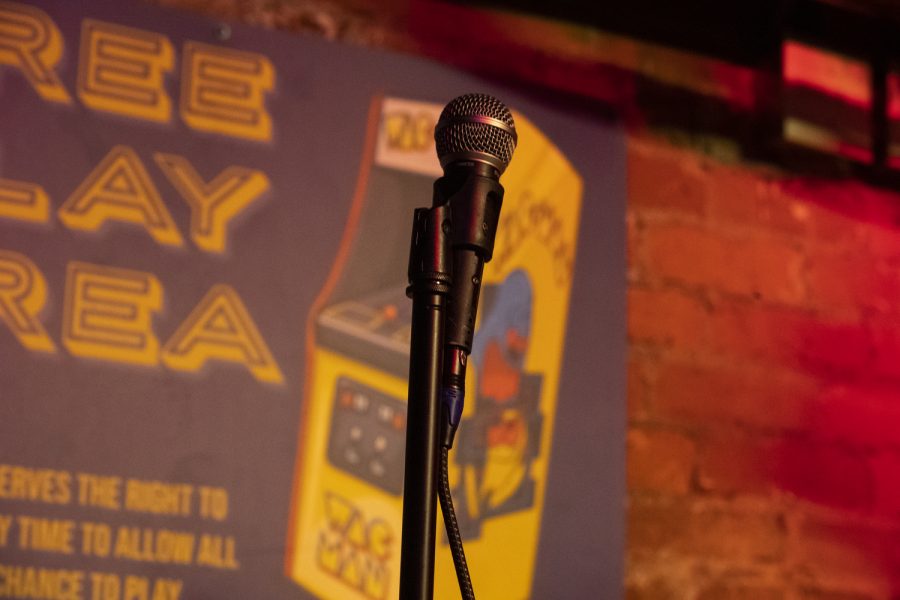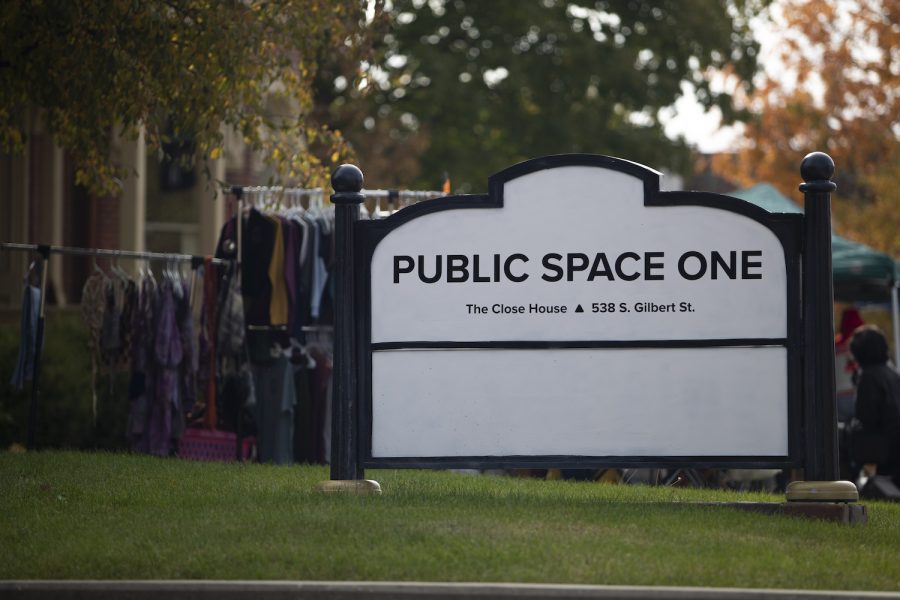While more than 200,000 small businesses have closed their doors in the last few years, super-corporations Walmart, Taco Bell, Crate and Barrel, and Kmart — all established in 1962 celebrated 50th anniversaries.
An underdog in this half-century club is the Mill, 120 E. Burlington St., a restaurant, bar, and music venue that will hold its golden anniversary this weekend with performances by some of the local artists that kick-started their careers at the locally owned establishment.
The Mill, which has been at its current location for the last four decades, was founded by Keith Dempster as a coffee shop called the Coffee Mill until it moved to Burlington Street between Linn and Gilbert Streets and became a restaurant, bar, and music venue. Since then, it has evolved into a cultural cornerstone with its relaxing atmosphere and food, loyal customer base and acclaimed musical and literary acts, a number of whom have gone on to national and international success.
“The Mill has kind of carved an edge for itself in terms of the kind of music it has and the quality over the years,” said J Knight, the founder and coordinator of the Mill’s Open Mike nights since 1981. “When Keith owned it, it was the oldest place in town owned by the same person. He always had his touch and was very good to musicians. There was kind of a connection to it by the local people.”
But even with decades of tradition behind it, the Mill nearly closed its doors in 2003 — until Marty Christensen came along.
“I was setting up for a gig with Dave Zollo at the Green Room, and he mentioned that Keith was going to close the Mill,” said Christensen, a bassist who had played with Zollo at the Mill for decades. “I thought for a few seconds and said, ‘There’s a way to keep that from happening.’”
A self-described “preservationist” and “entrepreneur at heart,” Christensen said he still saw a niche for the Mill, a business he first visited as an 8-year-old (he recalls eating its free spaghetti refills), and which served as a social and artistic outlet for him and his peers since his college years.
“The Mill is a great room for music and an important nexus for creative people,” Christensen said. “I felt like that was a very important mission that needed to be served.”
Despite doubts — including growing competition downtown — he said he had set his heart on the project.
“Dave assured me that the decision was made and Keith wouldn’t be persuaded otherwise. But I have a history of wanting to take on ambitious things. Dave sort of sealed my fate when he told me it couldn’t happen.”
Little more than a week after Dempster had announced the Mill would close for good, Christensen bought the Mill with friend and brother-in-law Dan Ouverson as his co-owner.
“I knew the Mill well enough to know it was a great place and wanted to get involved,” Ouverson said. “You can count on one hand the number of places around here that have lasted 50 years. The Mill is an institution; it’s part of the heart and soul of Iowa City.”
Along with the staff, the pair began to map out a future for the historic business. They diversified the musical genres and entertainment, expanded the menu, added lunch and brunch hours, and upgraded the PA system and stage area — while still keeping Mill staples, such as the egg-special sandwich, pizza, and spaghetti, as well as the pew seating, stained-glass decoration, and fish tank.
After the 2006 tornado in Iowa City, Christensen said, they used the seeming setback as an opportunity to enhance the building’s exterior and add an expansive patio.
“When we bought the place, a lot of people were thankful, but I also think many of them didn’t want to see it change at all — many of the Mill customers had been coming there for 20 years or more,” he said. “But change is inevitable, and it needed to be embraced.”
Through all the outside pressure, Ouverson said, he believes the additions have preserved the Mill’s integrity.
“There’s a phrase — If it’s not broken, don’t fix it; enhance it,” he said. “You have to bring about change slowly and very carefully. Anyone who went to the Mill 30 or 40 years ago isn’t going to see the differences, they’re going to see it as beautiful.”
Singer/songwriter Greg Brown, one of the original acts hosted by the Mill, agreed that, through all the change, the location hadn’t lost its flair.
“I’ve got a lot of affection for the Mill,” he said. “I toured the country and Europe for a long time, but when I came back to town, I went to the Mill. It was kind of my home joint for a lot of years. I get to see old friends, play some songs — it’s just natural interaction there for me.”
In a stark change of tone from playing for the Mill’s “farewell concert” in 2003, Brown has come back to town after his international tour to perform for the 50th anniversary celebration on at 8 p.m. Saturday, with Dave Moore performing that night as well (not a new meeting for the two, who can be seen smiling together in a photo that has been hanging up in the Mill for years).
Zollo, another Mill legend, will also perform with his band, David Zollo and the Body Electric, at 8 p.m. Friday. Other special guests will be featured throughout the celebration, which continues with “Brunch and Music for the Whole Family” from noon to 3 p.m. Dec. 16. Ticket prices vary.
Mill manager Trenton “Boone” Dickel said the performances should serve as both entertainment and reminiscence for patrons who have frequented the venue throughout its history.
“The backbone of the Mill is really the music,” he said. “The tradition is alive and well and thriving, and it’s in the incredible people who work here and those who come back after years. They will grab you and say, ‘I met my husband here at a show, and now my grandkids are here, too.’ It has a lot of history and meaning for them.”
Part of this tradition is set in the Mill’s “unique” position as a bar, restaurant and music venue, Christensen said — a demanding but rewarding combination.
“They say you can’t be all things to all people, and I know that’s true. But I really enjoy being able to shift the focus of the services from day to day or based on the time of day,” he said. “It also makes running the business more complicated. But I like that challenge, and I think we’ve gotten to a good balance among those personas.”
The staff agreed that it can be difficult to walk the fine line between maintaining and respecting tradition and adjusting to changing times — but if it can be done successfully, customers will repay the effort in spades.
“There’s not a lot around here that has survived this long,” Dickel said, noting the 100-year-old Englert Theater, which has endured natural and economic disasters over the decades by continually evolving. “If you’re genuine about it and keep adapting the building and aesthetics, then they will reward you with their business. The challenge of that is daily, and that’s something Marty understands.”
The Mill’s next 50 years — or next 50 weeks, for that matter — aren’t set in stone, Christensen said. But as long as the business continues to thrive on tradition, culture, and gradual adaptation to changing times, he said, its legacy should continue.
“The Mill is way bigger than me — the history, the customers, and the staff make it something really special,” Christensen said. “When I am there in the evening, and I see the place full, and the customers are happy, and the staff is busy, and the place is doing what it does well, I am humbled and thrilled. I love it.”
8 p.m. Saturday
Noon-3 p.m. Dec. 16
Admission: $15





